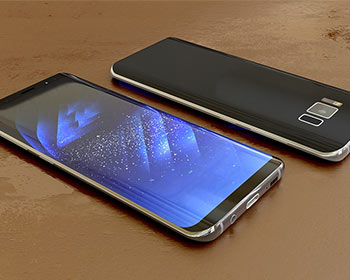NDSU Researchers Calibrate Smart Phone Readings to Improve Road Roughness Assessments
Posted: Sep 17, 2020
 Research on methods to calibrate sensor readings from smartphones so that they can be used as a replacement for specialized equipment used for measuring road surface roughness was recently published by NDSU researchers.
Research on methods to calibrate sensor readings from smartphones so that they can be used as a replacement for specialized equipment used for measuring road surface roughness was recently published by NDSU researchers.
"Calibration of Smartphone Sensors to Evaluate the Ride Quality of Paved and Unpaved Roads" by Xinyi Yang, Liuquing Hu, Hafix Ahmed, graduate students in civil and environmental engineering, and assistant professor of transportation and logistics Raj Bridgelall and associate professor in civil engineering Ying Huang was recently published in the International Journal of Pavement Engineering.
Because poor road conditions are a common cause of accidents, road agencies use specialized equipment to assess road roughness. Most smart phones are equipped with inertial sensors, making them a potential alternative to this expensive equipment. However, differences in their sensitivity and sampling rates can result in measurement inconsistencies. The researchers were able to develop a calibration coefficient to obtain consistent measurements from varying smart phones.